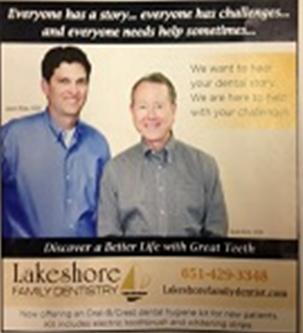Growing Trend Of Tooth Decay Related To Dry Mouth
posted: Sep. 05, 2013.
There is a growing trend in dentistry where patients are experiencing dry mouth and decreased saliva flow. Many of these symptoms are related to medications. Dry mouth can lead to much higher incidents of tooth decay. In the past, this type of tooth decay would lead to the possibility of patients needing dentures. Now patients are able to keep their natural teeth longer with the potential to have recurrent decay. This poses the challenge of having more frequent visits to the dental office.
Many experience the feeling of being thirsty – with decreased saliva flow – after exercise or after eating salty foods. Dry mouth however, is a condition where the mouth is unusually dry. Symptoms can include:
- A dry, sticky feeling in the mouth
- Being thirsty
- Signs of sores or split skin on the lips and corners of the mouth
- Feeling burning and tingling on the tongue, possibly with redness and rawness
- Difficulty speaking and tasting food
- Bad breath
Lack of saliva production can become a serious issue. Saliva is needed for many reasons. Saliva helps prevent tooth decay by removing leftover food debris, which also limits the amount of bacteria that grows in the mouth. The enzymes in saliva help food to digest. Our sense of smell and taste are enhanced by saliva giving us enjoyment when we eat. Dry mouth can be uncomfortable and create awkward social interactions, as well as decreased appetite. Dry mouth can also create issues of discomfort for people that wear dentures.
Along with the concerns of tooth decay, dry mouth can also lead to more serious issues like gingivitis, or gum disease, and infections in the mouth such as Thrush. The mouth is the “gateway” to the body. When there is serious infection in the mouth the entire body is at risk. Gingivitis has been linked to strokes and heart attacks.
At this point you might be wondering what causes dry mouth? There are many possible causes of dry mouth. A great deal of symptoms can be related to side effects from prescription and nonprescription medications. Allergy medications (antihistamines and decongestants) are meant to dry the sinus cavities to clear the mucous. This can have a drying effect on your mouth. Medications that treat anxiety and depression can also have a drying effect. Medications that treat health problems such as obesity, epilepsy and asthma also have the side effect of dry mouth. Medical conditions often have side effects of dry mouth as well. Diabetes, rheumatoid arthritis, anemia, and HIV/AIDS can cause your mouth to be dry. Some may experience dry mouth after certain medical procedures because of damage to the salivary glands. Cancer treatments with radiation and chemotherapy may also reduce saliva production. Other conditions that cause dry mouth can be dehydration from excessive exercise, sweating, and a fever. Your lifestyle choices can also have an impact on dry mouth conditions. Tobacco use – both smoking or chewing tobacco – affect saliva production as well.
If you experience dry mouth symptoms related to any of the above situations, there are ways you can promote saliva production. Consider some of these steps:
- Chew sugar-free gum
- Stay hydrated by drinking plenty of water
- Use a fluoride toothpaste to protect your teeth
- Talk to your doctor about possible side effects of your medications
- Ask your dentist about an oral rinse that promotes saliva production
- Breathing through your mouth can contribute to dry mouth – try breathing through your nose more often
- Environmentally you can use a vaporizer to help moisten the air in your home or workplace
It is important to address dry mouth symptoms to avoid tooth decay and more serious dental problems. If you have questions or need assistance, don’t hesitate to contact us. We can help make sense out of this complex issue. http://www.lakeshorefamilydentist.com/

